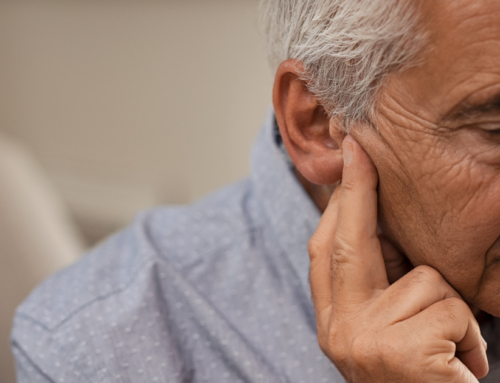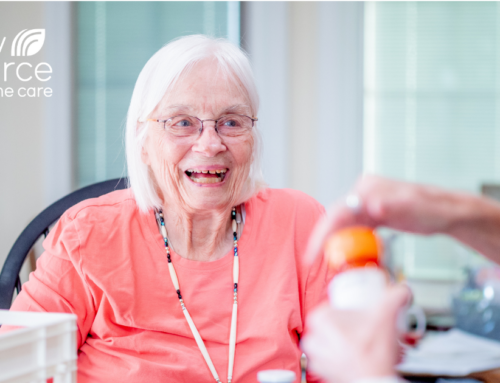The neuroscience of fitness is an exciting and rapidly growing field that explores the profound effects of regular exercise on our brain and nervous system. As we delve into this fascinating intersection of physical activity and brain health, we uncover significant implications for our overall well-being, particularly for the elderly. In this blog post, we’ll explore how exercise can be a game-changer for brain health, especially in the senior population, and how caregivers in senior assisted living can play a pivotal role in facilitating exercise tailored to individual needs.
Exercise and Neurogenesis: Building a Better Brain
One of the most compelling findings in the neuroscience of fitness is the relationship between exercise and neurogenesis, the creation of new brain cells. This primarily occurs in the hippocampus, an area of the brain fundamental to learning and memory. Regular physical activity triggers the release of brain-derived neurotrophic factor (BDNF), a protein that nurtures existing neurons and encourages the growth and development of new neurons and synapses.
Aerobic exercises like running and swimming are particularly beneficial for stimulating neurogenesis. They not only promote the growth of new neurons but also increase the size of the anterior hippocampus, leading to improved spatial memory. For seniors, this can be especially beneficial in maintaining cognitive function and memory as they age.
Exercise and Brain Volume: Preserving Vital Brain Matter
Regular aerobic exercise has been shown to increase the size of the hippocampus and preserve vital brain matter. This is crucial for improving spatial memory and cognitive function. As we age, certain areas of the brain, such as the frontal, temporal, and parietal cortexes, tend to shrink, which can lead to cognitive decline. However, exercise has been linked to the preservation of white and gray matter in these areas, helping to maintain cognitive function and reduce the risk of age-related cognitive decline.
Exercise and Sleep Quality: The Brain’s Restoration Period
Quality sleep is essential for brain health, and regular physical activity can enhance sleep quality. Improved sleep allows for better memory consolidation and more efficient toxin removal from the brain. For seniors, who often experience sleep disturbances, exercise can be a natural and effective way to promote better sleep and support brain health.
Exercise and Stress Reduction: A Natural Mood Booster
Exercise is not just beneficial for the body; it’s also a powerful tool for managing stress. Physical activity increases the levels of neurotransmitters like norepinephrine and endorphins, which moderate the brain’s response to stress and induce feelings of happiness. For seniors dealing with stress or anxiety, exercise can be a natural mood booster and a healthy coping mechanism.
Exercise and Brain Plasticity: Adapting and Thriving
Exercise promotes brain plasticity, the brain’s ability to adapt and form new neural connections throughout life. This is especially important for seniors, as it can aid in recovery from brain injuries and counteract age-related cognitive decline. The prefrontal cortex, responsible for various cognitive functions, responds positively to physical exercise, likely due to increased blood flow delivering more oxygen and nutrients to the brain.
Caregivers Providing Senior Assisted Living: Facilitating Exercise for Brain Health
Caregivers play a crucial role in facilitating exercise tailored to the personal and unique needs of the elderly. Understanding the benefits of exercise for brain health can help caregivers create personalized exercise plans that promote cognitive function, memory, and overall well-being.
Whether it’s gentle aerobics, walking, or chair exercises, caregivers can work closely with seniors to find activities that are enjoyable and beneficial. They can also incorporate exercises that focus on balance and coordination, helping to reduce the risk of falls and injuries, which are common concerns for seniors.
Our caregivers are committed to supporting seniors wherever they call home, whether it’s in their own house, an assisted living facility, or a retirement community. They understand the importance of maintaining a sense of independence and familiarity for seniors, and they tailor their services to meet the unique needs and preferences of each individual. They are dedicated to providing compassionate and personalized senior assisted living help, assisting with daily tasks, medication reminders, mobility support, and more. They take pride in enriching the lives of their clients, fostering a safe and supportive environment that promotes well-being and enhances quality of life. Our caregivers are passionate about what they do, and they derive great satisfaction from making a positive difference in the lives of seniors and their families.
Conclusion
The neuroscience of fitness highlights the significant impact of physical activity on brain health and cognitive function, particularly for seniors. From fostering neurogenesis and maintaining brain volume to enhancing sleep quality and alleviating stress, the advantages of exercise are diverse and profound.
Our caregivers providing senior assisted living, like those at our over 30 locations across the Pacific Northwest, including our dedicated team in Eugene, Oregon, play a crucial role in crafting personalized exercise plans tailored to individual needs. They assist seniors in harnessing the incredible benefits of regular physical activity to support brain health and overall well-being.
As we delve deeper into the neuroscience of fitness, the importance of integrating consistent exercise into our daily routines remains paramount for maintaining both physical and mental health. This underscores the enduring value of an active lifestyle at every stage of life.
Sources:
Exercise and the Brain: The Neuroscience of Fitness Explored






